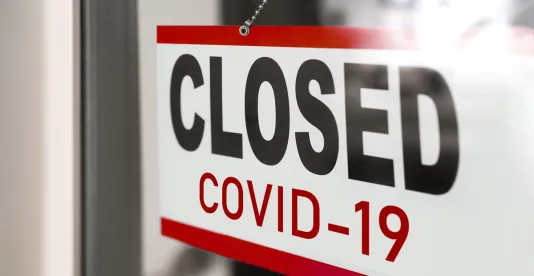Starting June 1, 2021, the Philadelphia Office of Worker Protections will begin enforcement of predictability pay as part of the Philadelphia Fair Week Work Ordinance.
The Ordinance, which became law in December 2018 and went into effect on April 1, 2020, imposes significant scheduling and pay requirements on certain retailers, hotels, and food service establishments. It also provides protections for employees whose employers fail or refuse to comply with the regulations. The enforcement of predictability pay was paused as of the April 1, 2020, effective date in response to the COVID-19 health emergency.
For more on the Ordinance, please see our articles, Philadelphia City Council Enacts Broad Scheduling Regulations and Philadelphia Fair Workweek Ordinance Set to Go into Effect April 1.
Predictability Pay
Predictability pay is compensation employers must provide to employees if employers initiate changes to employees’ posted work schedules.
Covered employers include retailers, hotels, and food service establishments, plus chain establishments or franchises, with at least 30 locations and 250 employees worldwide. Covered employers must post employees’ work schedules 10 days in advance of the workweek. Covered employees include all non-exempt employees under either federal or state law.
If an employer requests to change an employee’s posted work schedule, it is considered an employer-initiated change in which predictability pay must be provided. Employer-initiated changes include when an employer:
-
Reduces an employee’s hours;
-
Changes an employee’s scheduled work location;
-
Adds extra hours after receiving the employee’s consent to their posted work schedule; and
-
Makes changes to an employee’s on-call shift, including not calling an employee in to work.
Required Amount of Predictability Pay
Covered employers must pay the following amount of predictability pay for each change to the advance notice requirement:
-
If the employer adds time to an employee’s work shift, with no loss of hours, the predictability pay is one hour at the employee’s rate of pay.
-
If the employer changes the date, time, or location of an employee’s work shift, the predictability pay is one hour at the employee’s rate of pay.
-
If an employer subtracts hours from an employee’s regular or on-call shift, the predictability pay is no less than one-half times the employee’s rate of pay per hour, for any scheduled hours the employee does not work.
-
If an employer cancels an employee’s regular or on-call shift, including not calling the employee in to work, the predictability pay is no less than one-half times the employee’s rate of pay per hour, for any scheduled hours the employee does not work.
Exceptions to Predictability Pay
Covered employers are not required to pay predictability pay under certain circumstances. These include when:
-
Power outages, severe weather, or transit or utility shutdowns occur;
-
Threats to the employer’s property or personnel occur;
-
An employee’s schedule is altered due to changes involving a ticketed event or hotel banquet that are beyond the employer’s control; or
-
An employee’s hours are reduced due to termination of employment.
In addition, the Ordinance includes a 20-minute grace period for changes to shift times before an employee would be entitled to predictability pay.
Implications for Philadelphia Employers
Despite the ongoing economic effects of the COVID-19 pandemic on employers and employees nationwide, Philadelphia employers must ensure they continue to comply with applicable federal, state, and local employment laws, such as the predictability pay requirement that will be enforced as part of the Ordinance beginning June 1, 2021. Employers must document exemptions to predictability pay for two years, as with all provisions of the Ordinance.






 />i
/>i

